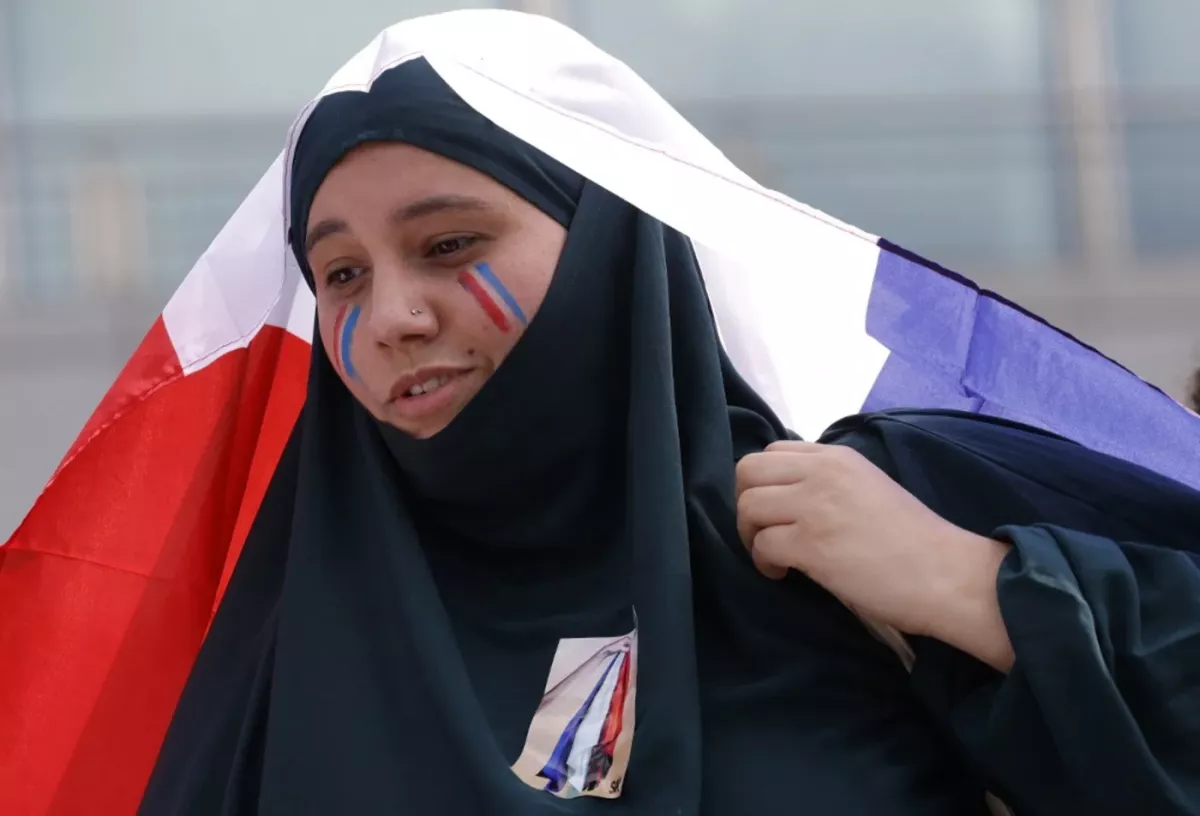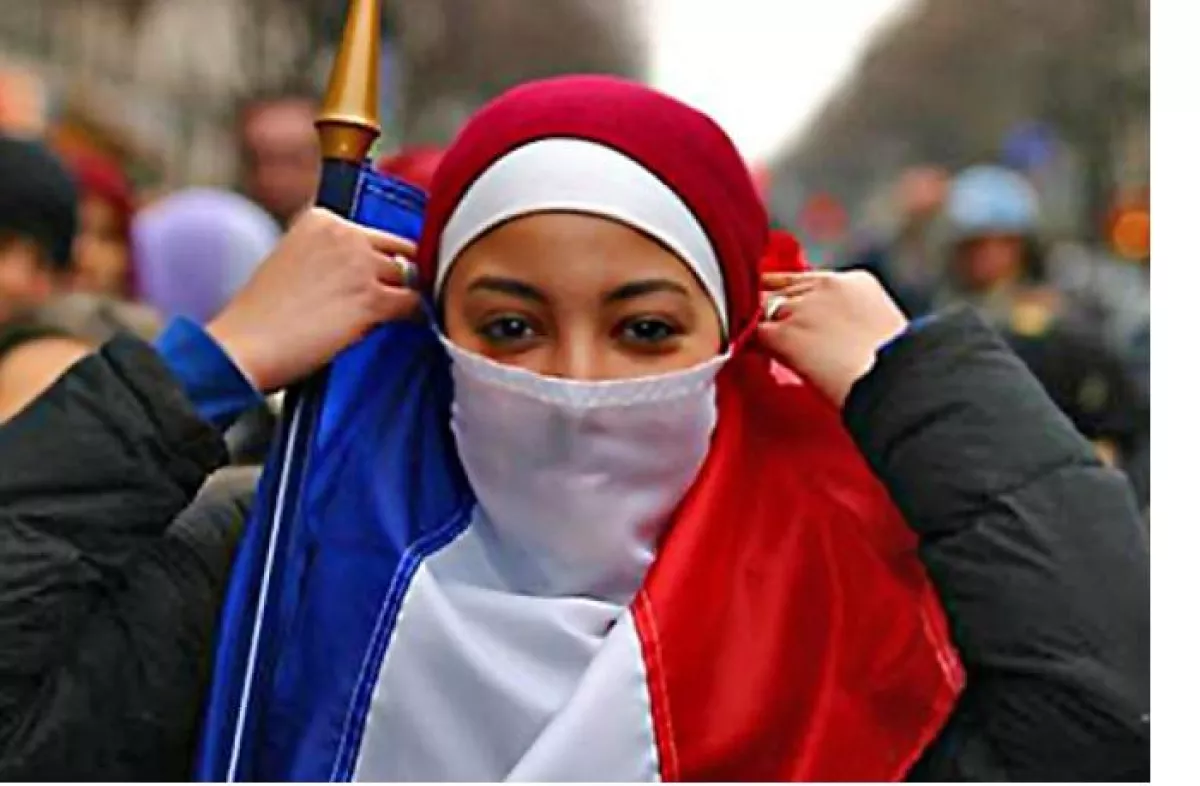France’s crackdown on "Islamist entryism" raises alarm among Muslims Article by Middle East Eye
In a recent piece, Middle East Eye dives into the growing concerns of Muslims in France over a new government report targeting the Muslim Brotherhood — fearing it could pave the way for a fresh wave of Islamophobic legislation. Caliber.Az republishes adapted excerpts from the original article.
There was no surprise - only dismay and frustration - among French Muslims following the publication last week of a government report highlighting the alleged influence of the Muslim Brotherhood and political Islamism in France.
Commissioned last year to “clarify the threat posed by Islamist infiltration to security and national cohesion,” the document aims to raise awareness about so-called Islamist entryism.
This is "considered a separatist mode of action" that "is characterised by involvement in local life to access positions of influence and power that enable the obtaining of amendments to existing laws".
For many Muslims in France, this was just another worrying step in the stigmatisation of their community.
"After accusing us of separatism, now we are suspected of plotting to seize power,” Salwa Hamiti, a former sports coach at a community centre near Paris, told Middle East Eye.
“How far will this demonisation go, turning us into enemies to be defeated?”
The 34-year-old Muslim woman became a target the moment she decided to cover her head two years ago.
“My manager didn’t appreciate seeing me arrive one morning wearing a turban,” she said.
“He immediately took me aside to ask me to remove it. According to him, not only was I breaking the laicite law, but I risked influencing the young girls I was training, most of whom were of Muslim origin,” said Hamiti, who eventually resigned.
“Fifth column”
The report on the Muslim Brotherhood’s influence in France unveiled last week highlights primarily alleged lobbying and networking practices.
Interior Minister Bruno Retailleau denounced the "threat" posed by the "entryism" of the Muslim Brotherhood, whose goal, according to him, is "to push all of French society into Sharia law."

For lawyer Sefen Guez Guez, this is "utterly false." And by promoting such a discourse, the authorities validate conspiracy theories about Islam, he told MEE.
"These theories suggest that there are organisations whose goal is to destabilise the nation, while we are all witnessing a rise in Islamophobia in France," he said.
According to the National Directorate of Territorial Intelligence, anti-Muslim acts have increased by 72 percent when compared to the same period last year.
Dramatic as this rise is, representatives of the Muslim community believe these figures do not show the full extent of the problem as victims do not always file complaints.
Guez Guez considers that "the state contributes to amplifying Islamophobia by suggesting that Muslims represent a danger and constitute a kind of fifth column, especially if they organise and succeed".
"Personally, I am convinced that it is the success of the Muslim community in this country that is disturbing," he added.
In recent years, the lawyer has defended several cases involving Muslim organisations targeted by banning procedures - such as the Collective Against Islamophobia in France (CCIF), dissolved in 2020 - as well as the closure of mosques and private Muslim schools.
All these entities have been accused of colluding with Islamist circles and propagating their ideas.
This is the case of the Averroes Muslim high school, a high-quality establishment located in the northern city of Lille, whose legal team has just obtained, on appeal, the reinstatement of public subsidies after more than a year of legal battles.
In Lyon, in eastern central France, the fate of the Al Kindi high school, also renowned for the excellence of its results, is still in the hands of the courts.
The lawyer denounced: “A clear desire on the part of the state to dismantle any possibility for the Muslim community to build an elite that is professionally successful and at the same time asserts its Islamic identity.”
A year and a half after the promulgation of the so-called “separatism” law in 2021 - which its detractors say discriminates against Muslims - 3,000 inspections have been carried out in Muslim establishments.
As a result, 187 were closed, including seven mosques and 11 schools.
"We must expect similar decisions to multiply following the publication of the report," Guez Guez warned.
“A culture of suspicion”
This is also the fear of Christian Di Meglio, president of Sete Olympique, an amateur soccer club near the southern city of Montpellier that was stripped of its license a year ago for emblazoning its players' jerseys with a star and a crescent, two emblematic symbols of Islam.
The club has been accused of “communautarist” practices and “separatism”.
"Our logo had never caused any problems since the club's creation in 2016, but with the rise of the far right, we became a target,” he told MEE.
"When players pray in the locker room, they are Islamists, but when a footballer makes the sign of the cross upon entering the pitch, it doesn't bother anyone," Di Meglio said, protesting against "the development of a culture of suspicion that exclusively targets Muslims."
The rector of the Grand Mosque of Lyon, Kamel Kabtane, calls it "a presumption of guilt towards Muslims".

Other Islamic organisations, such as the Grand Mosque of Paris and the French Council of the Muslim Faith, are concerned about the stigmatisation of Muslims in the name of the fight against Islamism.
The Grand Mosque of Paris has denounced in a press release "the construction of a Muslim problem and the insidious development of an increasingly uninhibited discriminatory discourse" whose aim is to “serve particular political agendas".
Politically-motivated
For Franck Fregosi, a researcher at the National Centre for Scientific Research and a specialist in Islam in France, the report serves in particular the interior minister, "whose presidential ambitions are well known".
"I admit I don't understand the nature of this threat. Should we consider that 400 people, who constitute the centre of the Brotherhood [according to the report], could subvert republican institutions or even Islamise society? It's not credible," he told MEE.
What’s more, the researcher worries that the report will be a pretext to develop new, more restrictive laws against Muslims.
The fear is shared by the rector of the Grand Mosque of Lyon.
"The content of this report serves to scare public opinion and then provide [the government] with the means to act with racist laws against Muslims without the French people being upset," Kabtane said.








